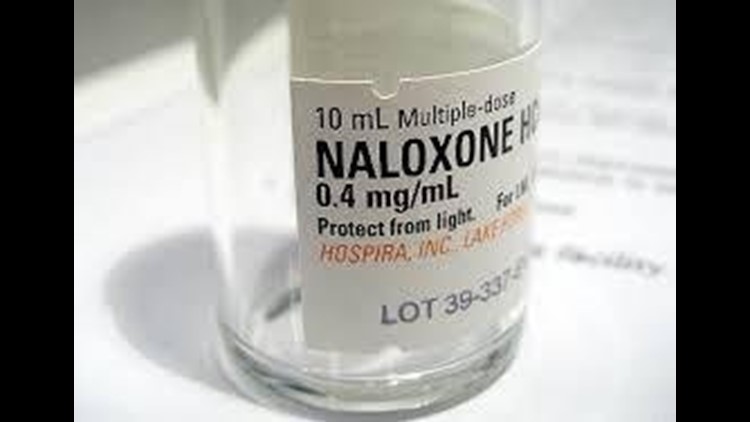DAUPHIN COUNTY, Pa.– On Wednesday, January 8, the Wolf Administration will provide free naloxone to Pennsylvanians attending the Pennsylvania Farm Show as part of an ongoing effort to stop opioid overdoses and get residents into treatment.
“Naloxone is a life-saving medication that can reverse the effects of an opioid overdose,” Secretary of Health Dr. Rachel Levine said. “Since 2018, we have provided free naloxone kits to more than14,000 Pennsylvanians– that means 14,000 lives can be potentially saved. We know that Pennsylvanians are dedicated to helping to save lives of not only their loved ones, but also anyone who has overdosed.”
The distribution will take place in the Farm Show Complex at the Pennsylvania Department of Health’s booth (booth 737), from 8:00 a.m. to 9:00 p.m., as supplies last. Information about the PA Farm Show including parking, can be found here.
“We are at a critical crossroads in combatting the opioid epidemic in Pennsylvania,” said Department of Drug and Alcohol Program Secretary Jen Smith. “We have a choice to accept overdoses and the disease of addiction as the new normal or to fight back. I choose to fight. We simply cannot get an individual the help they desperately need following an overdose if they are dead. I hope that all Pennsylvanians use the naloxone distribution to proactively take action to save our loved ones.”
In addition to being able to get naloxone for free on the distribution days, it is carried at most pharmacies across the state year-round. Secretary of Health Dr. Rachel Levine issued a standing order prescription to any Pennsylvanian to get naloxone at a pharmacy for anyone who may need it. Naloxone is available to many with public and private insurance at pharmacies either for free or at a low cost.
The Opioid Command Center, established in January 2018 when Gov. Wolf signed the first opioid disaster declaration, meets every week to discuss the opioid crisis. The command center is staffed by personnel from 16 state agencies and the Office of the Attorney General, spearheaded by the departments of Health and Drug and Alcohol Programs.
Data shows that in 2018, more than 4,400 people died from a drug overdose. This represents a nearly 18 percent decrease in drug overdose deaths from 2017.
Efforts over the past four years, working with state agencies, local, regional and federal officials, have resulted in significant action to address the opioid crisis. Recent efforts include:
- More than 7,000 kits of naloxone were distributed to Pennsylvanians in September 2019 and another 7,000 kits were distributed in December 2018.
- The Prescription Drug Monitoring Program has reduced opioid prescriptions by 30 percent and has virtually eliminated doctor shopping.
- The Opioid Data Dashboard and Data Dashboard 2.0 is providing public-facing data regarding prevention, rescue and treatment.
- The waiver of birth certificate fees for those with opioid use disorder has helped more than to 3,500 people, enabling easier entry into recovery programs.
- A standing order signed by Dr. Rachel Levine in 2018 allowed EMS to leave behind nearly 1,170 doses of naloxone.
- More than 6,000 health care professionals have been visited and provided training on how to prescribe opioids cautiously and judiciously.
- 813 drug take-back boxes help Pennsylvanians properly dispose of unwanted drugs, including 482,000 pounds of unwanted drugs in 2018.
- The Get Help Now Hotline received more than 30,100 calls, with nearly half of all callers connected directly to a treatment provider.
- The state prison system has expanded their Medication-Assisted Treatment (MAT) program, which is viewed as a model program for other states.
- More than 100 licensed physicians or prescribers have been disciplined for wrongful practice over the past two years.
- Several agencies have worked together to collaborate on the seizure and destruction of illicit opioids across Pennsylvania.
- The coordination with seven major commercial providers has expanded access to naloxone and mental health care, while also working to make it more affordable.
- Naloxone has been made available to first responders through the Commission on Crime and Delinquency, with more than 25,000 doses made available and more than 4,500 saves through that program. In addition, EMS have administered more than 29,600 doses of naloxone.
For more information on Pennsylvania’s response to the opioid crisis visit www.pa.gov/opioids.
SOURCE: Governor’s Office



